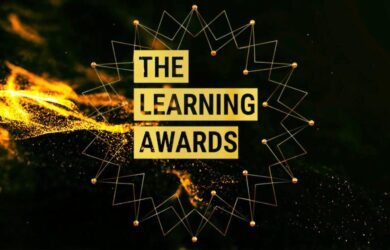When I was a student, I had to learn and remember a lot of information to pass my end-of-year exams, and I did so in various ways.
I’d start off by reviewing the notes and handouts from my lectures, and I’d rewrite them by hand. This helped refresh my memory, and clarify the information in my mind. If I didn’t understand something, or wanted more detail, I would do some further reading or research around the subject.
Next, I’d condense my notes, writing them in as few words as possible, and type them into an easy-to-read format. I used bullet points, bold font and underlined text to identify important points. Next, I’d highlight different themes in a variety of colors to help me memorize them more easily.
The next step was to write out the main points from my word-processed document onto postcards. I would also include questions, and put the answers on the back, so I could test myself when I was on the move. Another method was to stick fluorescent pieces of paper all over the house – on the kettle, in the lobby, in the shower (I waterproofed it!) – to help me remember what I’d learned.
As well as writing things down, I also learn by listening. Although I hate the sound of my own voice, I used to record myself reading my notes, as well as chapters from books and journal articles, to help me absorb the content. I’d play the recordings on my tape player (remember those?!) when I was travelling: I even used to listen to them before I fell asleep.
Of course, learning in the workplace is different from when you’re at school, where the focus is about putting your learning into practice rather than passing exams.
We recently asked you “How do you learn best?” on Facebook, and we received some great responses so thanks very much for your contributions!
Like me, Tammy Demps learns by reading, and Anita Poole by “reading aloud, or writing down what I read.”
However, many of you learn best by working alongside other people. Audrey Orieux said, “A good training course is when you can express your ideas by brainstorming.” She also mentioned how the Six Thinking Hats technique can be a useful exercise for exploring different perspectives, and learning from others.
Jason Fisher agreed that “collaboration with like-minded people can bring solutions to the front.” Similarly, Ruben Nitschke said, “My preferred learning style is discussion, giving my ideas on a topic, as well as listening to arguments and ideas of others.”
Other people said they learn best by “doing.” Jessica Huang said, ”A ‘baptism by fire.’ Dive in and learn along the way!” I completely agree with this. It’s no good knowing the theory about something if you can’t apply it in real life. However, you need to have the support from your manager and team members for this approach to be successful.
For many of you, creating the right environment is key. Sonia Clauzel and Gina Mason both mentioned that they listen to music when they’re trying to learn. I can see how relaxing music might work for some people, but I find it difficult to absorb information if there’s any kind of background noise. (If I’m trying to get my head around something particularly complex, I listen to “white noise” to drown out any distractions. It really works!)
One of the best comments we received to the question “How do you learn best?” came from Diana Thompson-Sorric. “I have recently started sitting on a stability ball to sit through long, boring meetings. Listening to a lecture is a very passive activity and your brain goes into sleep mode, much like a computer. By adding the proprioceptive feedback by bouncing, rocking or rolling keeps the brain awake and ready to receive input!”
I don’t know about you, but I’d like to try this suggestion in my office. What a great idea!
So how do you learn best? We’d love to hear from you. Please share your thoughts and comment below!





Comments
Bruce Murray says
10 years agoI learn best by simply wanting to learn. If it truly matters to me, I'll learn it. For the other stuff, a bouncy ball might come in handy.
Yolande Conradie says
10 years agoThere's a lot of truth in what you said Bruce. Something I've learned over years is not to judge the quality of info based on how the speaker conveys the message. If it's something I really want to learn, I'm quite able to listen to a really terrible speaker.
That said, I do enjoy learning by doing something practically and by figuring it out for myself. The bigger the struggle, the better I learn the lesson!
Bill Tucker says
10 years agoI really enjoyed this article, and it reminded me of the bite-sized training on Learning Styles found here: http://www.mindtools.com/community/pages/article/mnemlsty.php. Personally, I prefer to learn in environments where I have chosen to learn, rather than one where I have been told to learn.
Shelley says
10 years agoI learn best hands on, watching first, then doing. Also...I truly love audio books. I can listen to audio books on long trips, learn as I travel.
Midgie Thompson says
10 years agoHi Shelley,
I also like to observe first then do it myself, with the opportunity to check things and ask questions.
Audio books are indeed a great use of your time on long drives/commutes. As much as I enjoy no longer having a long commute, I do sometimes miss all that reading/listening time!
Caroline Smith says
10 years agoThanks for that, Shelley. Audio books are great. I have decided to try getting into podcasts as well, because I think they're a great way of learning while you're on the move.
Shivajyoti Pal says
10 years agoI learnt best when the subject interested me. Discussions with peer group, doing a presentation in front of a class or study group also helped a lot. There was also this feeling that all other students in the class are better than me - inhibited me participate in the class.
Caroline Smith says
10 years agoAbsolutely! If I'm not interested in a subject (like science, at school) I find it very difficult to learn about it. I think that shows how important it is that we do things we enjoy, as much as possible!
Shailesh says
10 years agoI have read that any information associated with emotions are better remembered by the brain. In some articles I have even read the contrary of the above statement. Please clear the air about the topic and if one can learn better with emotions then how to utilize them effectively.
I've heard that any statement repeated oft enough to the people would make them believe and follow that statement. The complete advertising industry is based on this principle. Also even as you have mentioned in the article above; going through the same information again and again, in different ways, helped you remember that piece of information. But, as far as my observation goes, sometimes even reading or reciting the same information over 100 times does not really help but some other information, deemed to be exciting by the brain sometimes gets imprinted in our brain for a lifetime- be it an accident, praise or anything- on its first and only occurrence. Can you please explain WHY?
Thanks for reading this comment.
Rebel says
10 years agoInteresting question Shailesh. I wonder if this is about how interested you are in a certain topic? Maybe we learn best if we really WANT to know more about a topic or subject, than simply doing it because we have to.
Culberto says
10 years agoWell, let me tell you that for me the learning process has to do with your personal emotions. Taking the process as something you will enjoy from the beginning, not as a task, a have to; but as an activity. Adding value. without anxiety.
Bill Tucker says
10 years agoYou know, when I think about your comment Culberto, I think that emotion has a lot to do with how we learn. Even if I'm learning something that I enjoy, if I'm distracted by something that has happened outside of the learning environment it can really impact how hard I concentrate, for example. Good comment.
Patra Taylor says
9 years agoI learn best visually and performing "hands on." I can't just listen/ read about it one time and totally grasp the idea of something complex...especially the field I'm in, Forensic Chemistry. I have to take notes and rewrite, notecards, different color pens, etc. Whatever it takes to stick in my mind.
Bill Tucker says
9 years agoHi Patra.
Thank you for sharing your strategies for learning.
Cecilia says
9 years agoMy learning style is visual auditory. I love read something I interest with music. It helps me to understand the content than just read without some voice. I love discussion too..